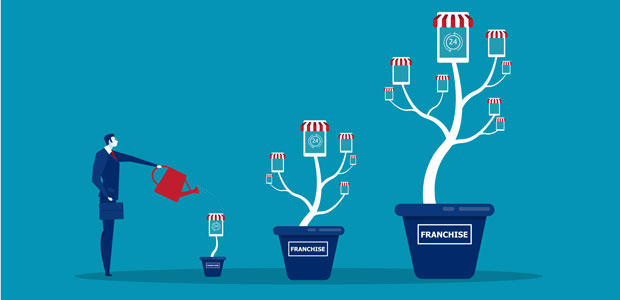
Thinking of franchising? The legal need to knows
Startups looking to enter franchise agreements should pay careful attention to the contracts they enter into, a leading law firm has said. Harper James Solicitors said many franchisors are often willing to include a force majeure clause, which changes the franchisee’s obligations in the event of extraordinary circumstances - like the ones that devastated many businesses in the last 18 months.
The issue of franchising was thrust back into the spotlight this week when High Street sandwich chain Pret A Manger announced it was planning to open 100 new outlets with franchisees.
The cafe-chain reportedly wants to divide the UK into regions and select a different franchise partner in each one.
The move reflects a growing trend
Currently, there are around 48,000 franchise businesses in the UK. This is around twice the number that were operating a quarter of a century ago. Clearly the franchise model must be a successful one to see this degree of growth.
Commenting, a corporate solicitor Abby Watson from Harper James Solicitors, said: “There are three things to remember. One, if you are entering into an agreement with a company then research the brand and the industry that it operates in. Two, always make a business plan. And third, get legal advice before entering into the franchise agreement. This agreement is very important as it sets out all the terms and conditions that you will need to meet and follow, the franchise fee and when the franchise will end – you may need to pay a renewal fee to extend it.
"Some franchisors may be willing to include a force majeure clause, which changes the franchisee’s obligations in the event of extraordinary circumstances - this would be useful in the case of another pandemic, for example, as if the force majeure clause is invoked, the franchisee may be able to stop paying fees for a certain amount of time.
Being able to benefit from a business’s existing brand awareness is one of the main reasons to start a franchise unit. Rather than worrying about launching marketing campaigns and getting their brand name out there, investors can concentrate on building and developing their businesses.
In previous years, there were just a few big-name brands taking on franchisees. Now, like the Pret, the franchise model is used widely; McDonald’s, KFC and Subway, for example, are all on the lookout for new investors. And the more established a franchise is, the more the franchisee will benefit.
With an increasing number of businesses using the franchise model to expand and reaching impressive levels of consumer visibility, more and more prospective franchisees are drawn to the business model. This, of course, only serves to boost franchises’ standing even further.
With more franchise opportunities comes more variation in investment requirements. Budding entrepreneurs on a budget can join a thriving business for just a few thousand pounds, while those with the cash to splash can invest millions. The increasing number of low-cost franchise opportunities have broken down financial barriers for those who would never previously have been able to afford to start a business.
Also, thanks to the stability of the franchise model in general, more financial institutions are choosing to partner with established franchises and offer financing packages for its prospective franchisees. In some cases, banks will cover up to 70% of a franchisee’s initial investment.
Younger investors and women are also increasingly recognising the reasons to start a franchise unit. In fact, 18% of franchisees are under the age of 30, and 37% of new investors are women - a figure which has risen by 20% since 2015.
To find out more, click here.


